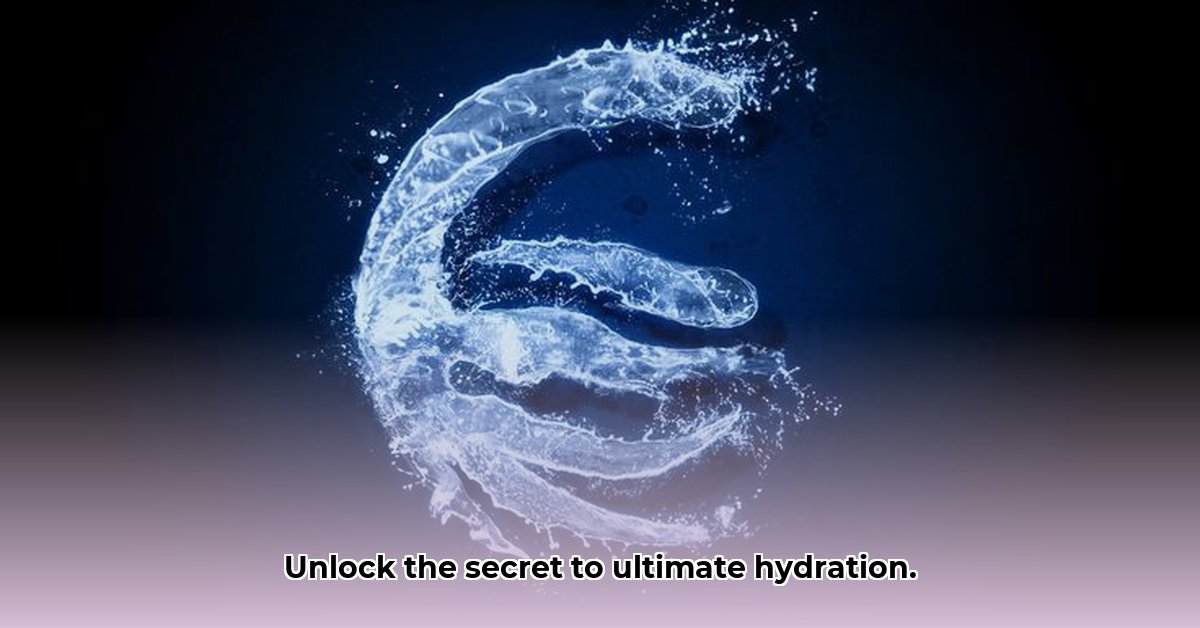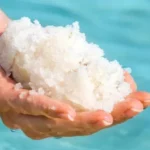Beyond “Just Drink Water”: Understanding True Hydration
Feeling sluggish, experiencing headaches, or noticing muscle cramps? You might be dehydrated, even if you believe you’re drinking enough water. Conventional hydration advice often overlooks the critical role of electrolytes and water quality. This article dives deep into the science of hydration, exploring why electrolytes are essential, how water quality impacts your health, and how to personalize your hydration strategy for peak performance and overall well-being. For more on water’s symbolic meaning, check out this interesting article: Water symbolism.
Electrolytes: The Essential Spark for Optimal Hydration
Electrolytes—minerals like sodium, potassium, magnesium, and calcium—aren’t just buzzwords; they are fundamental for countless bodily functions. These minerals act as electrical conductors, regulating everything from muscle contractions and nerve impulses to fluid balance and nutrient absorption. An electrolyte imbalance can disrupt these crucial processes, leading to fatigue, muscle cramps, headaches, and decreased cognitive function. Just as a car needs a properly functioning electrical system, your body relies on electrolytes to operate efficiently. Intense exercise, hot weather, and certain medications can deplete electrolyte levels, making replenishment even more crucial.
Water Quality: Unveiling the Hidden Impact on Hydration
The source of your water matters significantly. While access to clean drinking water is vital, not all water is created equal when it comes to hydration. Mineral-rich water, such as natural spring water or electrolyte-enhanced beverages like Element Water, offers a more comprehensive hydration solution. These waters naturally contain electrolytes, providing your body with the essential minerals it needs for optimal function. Conversely, purified or distilled water, while clean, often lacks these vital minerals. Understanding the mineral content of your water can make a profound difference in your hydration effectiveness. Consider exploring mineral water options or incorporating electrolyte supplements to ensure you’re receiving the full spectrum of hydration benefits.
Dehydration Unveiled: Recognizing the Subtle Signs
Dehydration isn’t always obvious. While intense thirst is a clear indicator, more subtle signs often go unnoticed. Fatigue, headaches, muscle cramps, difficulty concentrating, and dry skin can all be symptoms of dehydration. Ignoring these signals can lead to more severe complications, impacting both physical and cognitive performance. Learning to recognize these subtle cues is essential for maintaining optimal hydration and preventing potential health issues.
Crafting Your Personalized Hydration Plan: A Step-by-Step Guide
Effective hydration isn’t a one-size-fits-all approach. It’s about understanding your individual needs and adapting your strategy accordingly.
-
Assess Your Baseline: Factors like activity level, climate, diet, and overall health play a significant role in your hydration requirements. An athlete training in hot weather will need significantly more fluids and electrolytes than someone with a sedentary lifestyle in a temperate climate.
-
Choose Your Hydration Sources Wisely: Opt for mineral-rich water or electrolyte-enhanced beverages. When considering electrolyte drinks, scrutinize labels carefully, avoiding products laden with excessive sugar or artificial ingredients. Prioritize natural sources of electrolytes whenever possible.
-
Listen to Your Body’s Signals: Pay close attention to your body’s feedback. Thirst, fatigue, headaches, and muscle cramps are all indicators that your hydration levels may be suboptimal. Adjust your fluid and electrolyte intake based on these cues.
-
Monitor and Refine: Regularly assess your hydration status and make adjustments to your plan as needed. What works for you today might not be sufficient tomorrow. Factors like changes in activity level, weather conditions, or illness can all influence your hydration needs.
Electrolyte Drinks: Navigating the Options and Making Informed Choices
The electrolyte drink market offers a dizzying array of options. Navigating this landscape requires careful consideration. Look for drinks that provide a balanced blend of electrolytes, avoid excessive sugar and artificial ingredients, and align with your individual taste preferences. Consider factors such as the intensity of your activity, the climate, and your overall health when selecting an electrolyte beverage. Consulting with a healthcare professional or registered dietitian can provide personalized guidance tailored to your specific needs.
Electrolyte Balance: A Cornerstone of Wellness
Maintaining proper electrolyte balance is crucial not just for athletes but for everyone seeking optimal health. Electrolytes play a vital role in numerous bodily functions, impacting everything from energy levels and cognitive function to muscle health and fluid balance. Understanding the importance of electrolytes and incorporating strategies to maintain balance can significantly contribute to your overall well-being.
Future-Proofing Your Hydration: Strategies for Long-Term Health
Hydration isn’t just about today; it’s about investing in your long-term health. By adopting a proactive approach to hydration, incorporating electrolyte-rich beverages, and listening to your body’s signals, you can ensure you’re providing your body with the essential elements it needs to thrive for years to come. Regularly review your hydration strategy and adapt it as your lifestyle and health needs evolve. Staying informed about the latest research and advancements in hydration science can empower you to make informed choices that support your ongoing well-being.
- Discover Life in a Medieval Castle: Beyond Battles & Banquets: Unveiling Daily Life - August 2, 2025
- Scipio Africanus: Hannibal’s Nemesis: Rise, Fall, and Legacy - August 2, 2025
- Unveiling Superorganisms: Are Ant Colonies One Mind? - August 2, 2025















